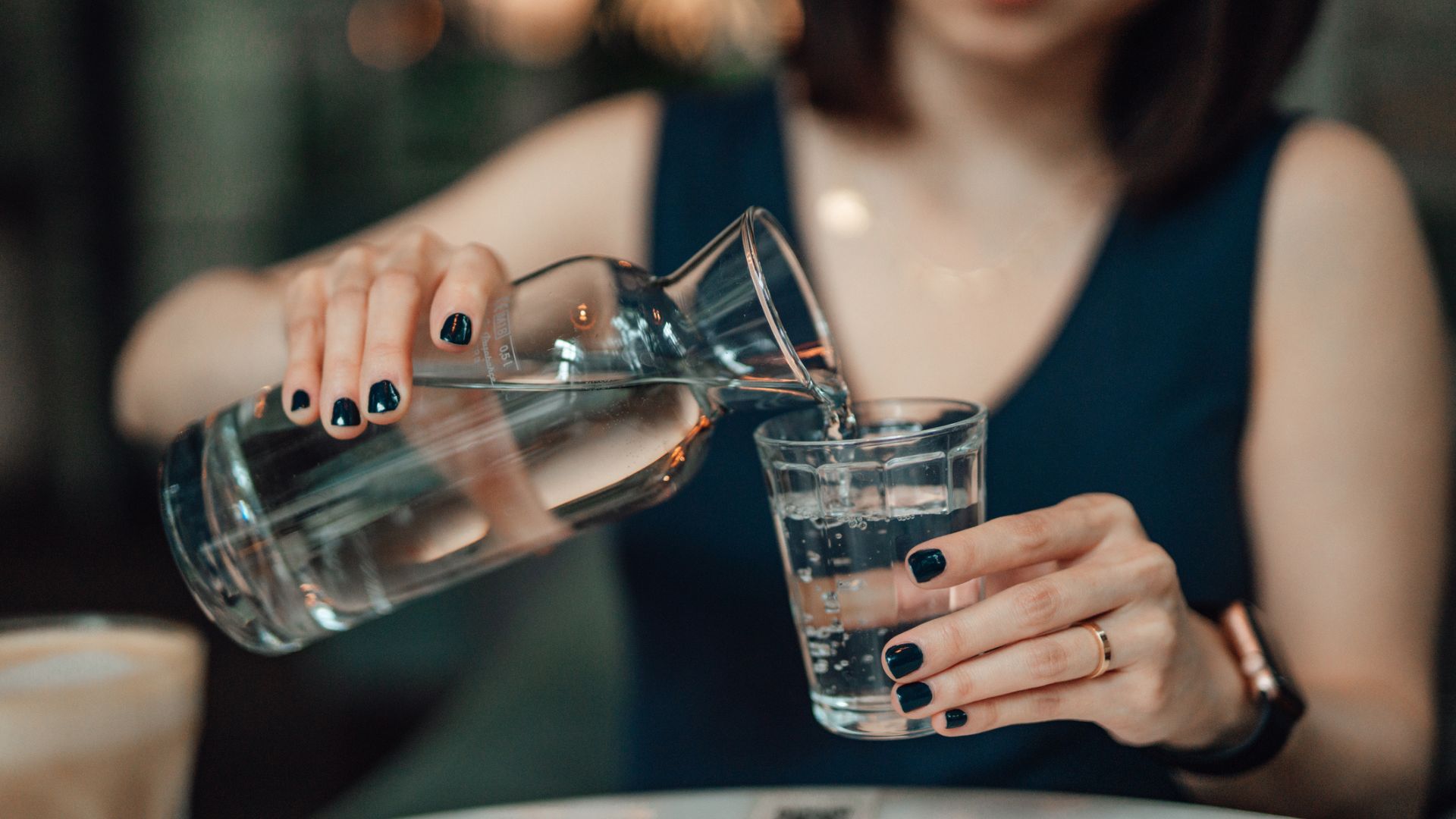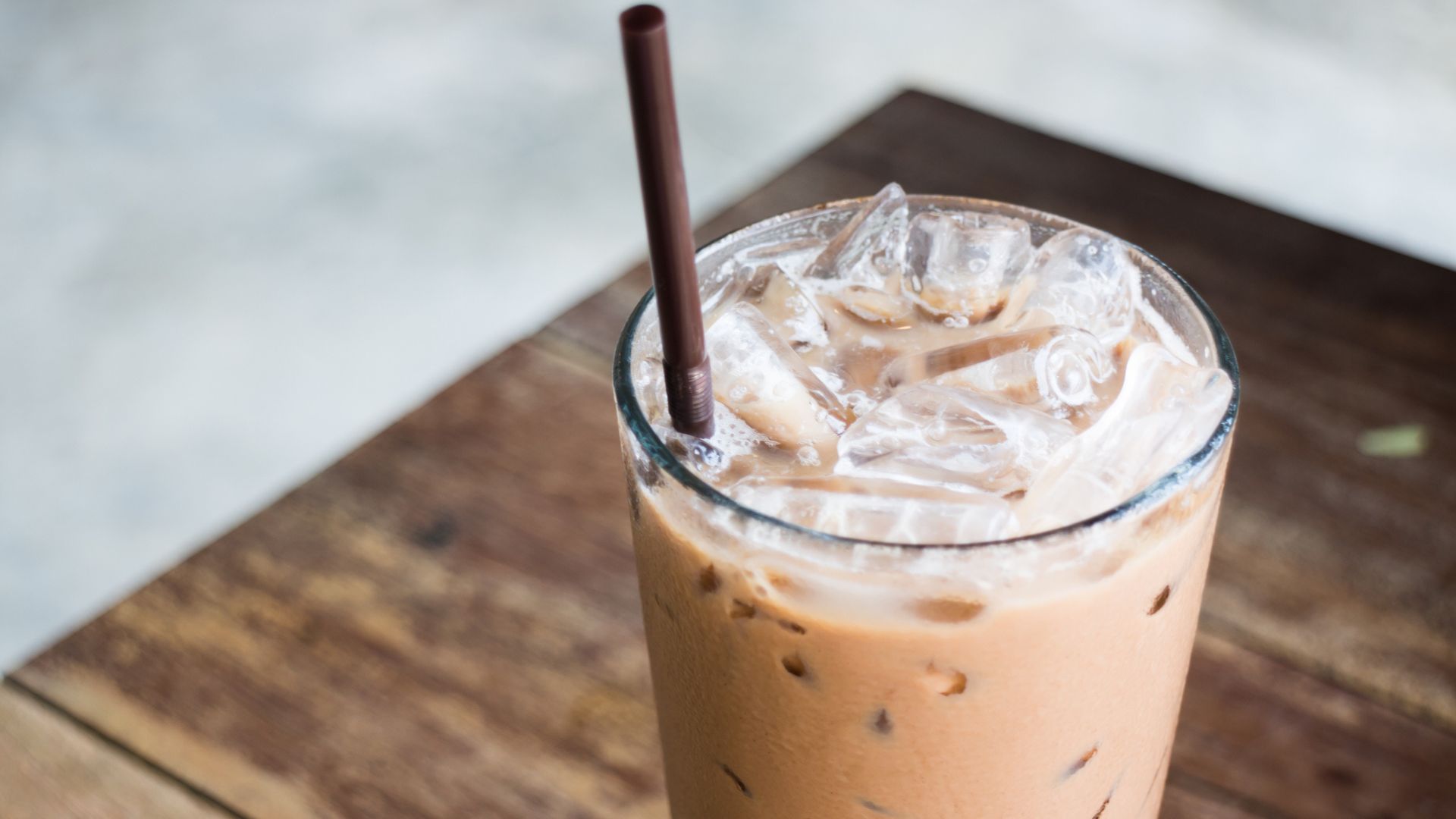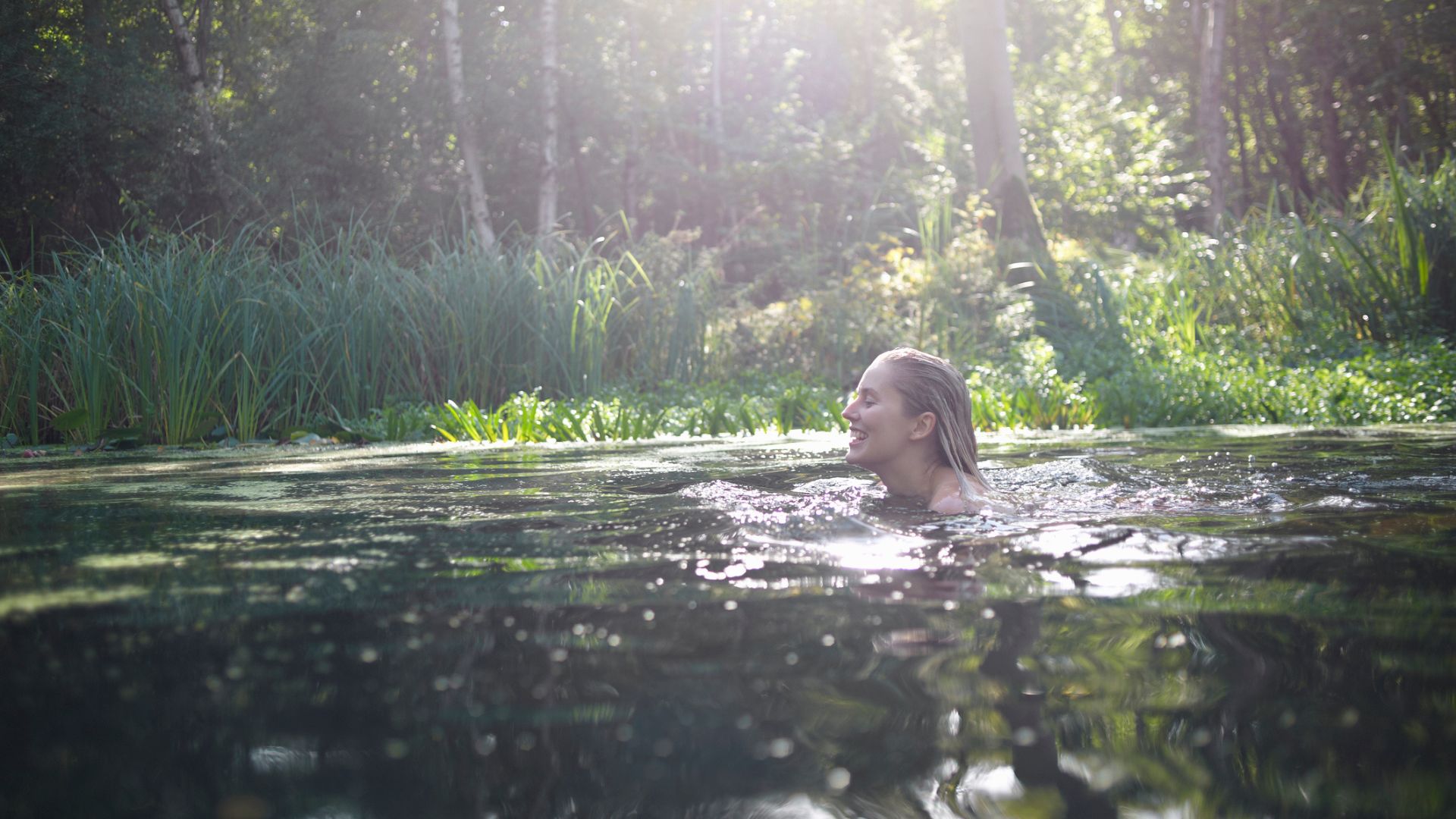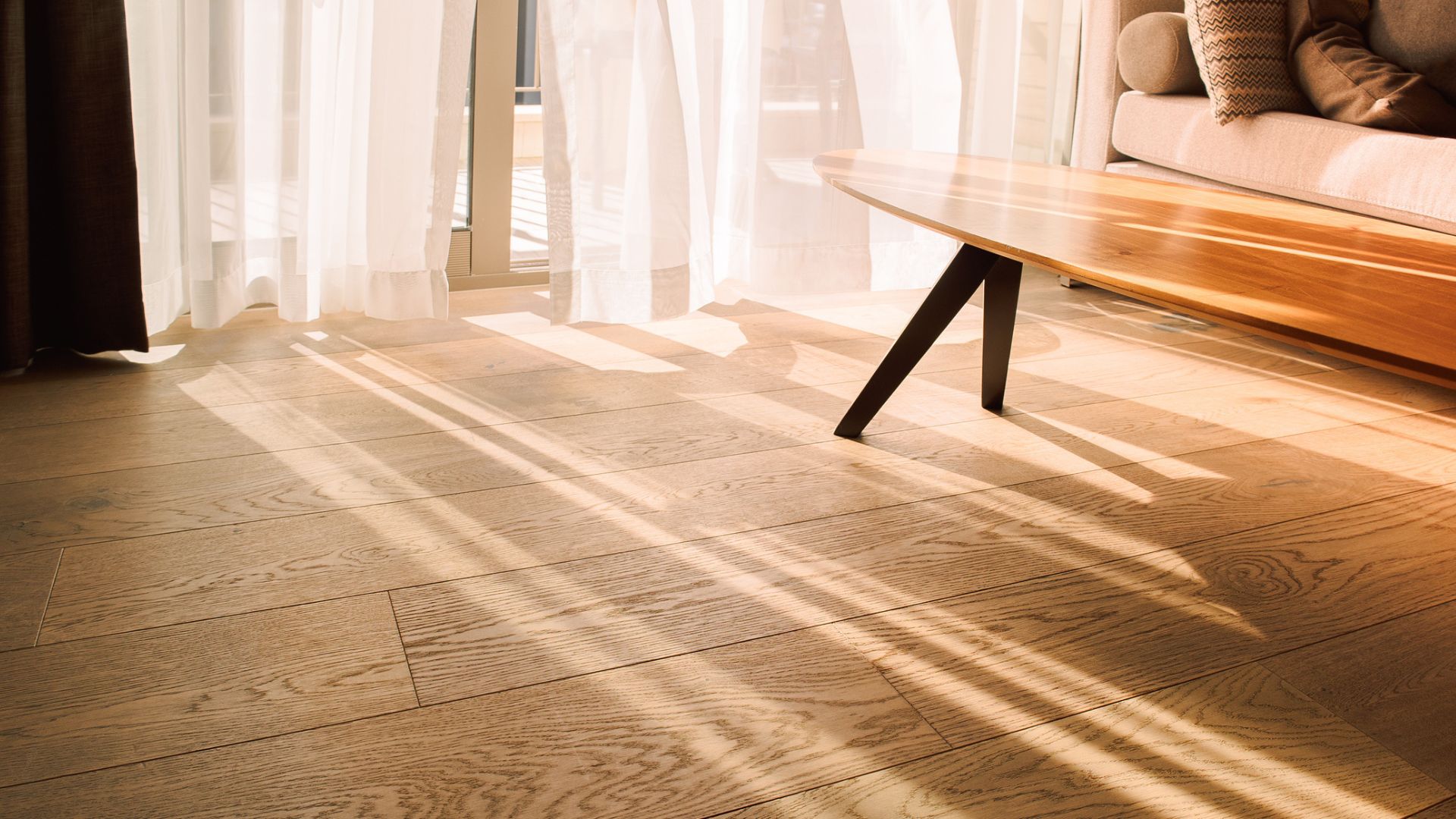Why does heat make you tired? Plus, 10 ways to stay motivated in a heatwave
If you're wondering why does heat make you tired, you're not alone. This is what the experts say


Why does heat make you tired? If you're feeling the rising temperatures impacting your energy levels during the heatwave, you're certainly not the only one. Whether it's sweating it out in the city or dealing with blistering temperatures abroad, many of us are feeling the heat this summer.
When the sun comes out, we want to be out enjoying it. But more often than not when the temperature climbs, we're hit with feelings of tiredness and lethargy that keep us inside.
Luckily, there's a reason for that and most of the time, unless it's linked to heat exhaustion or a heat stroke, it's easy to learn how to keep cool in the summer, pick up your motivation, and beat the summer slump. Here several experts, including a doctor, personal trainer, and nutritionist, share their advice for keeping cool.
Why does heat make you tired?
It’s not unusual to feel more tired than normal when it’s particularly warm outside. Our bodies are designed to protect us from the heat, explains Dr Ian Cole, GP at King Edward VII's Hospital. Various bodily processes kickstart when the temperature goes up to stop us from overheating and the energy loss that this entails is what makes us feel lethargic and tired.
"The hypothalamus in the brain works with other parts of the body's temperature-regulating system such as the skin, sweat glands, and blood vessels, which are the vents, condensers, and heat ducts of the body's heating and cooling system," he explains, so when our brains recognize that we're feeling too warm, these three parts of the body jump into action.
"The middle layer of the skin, or dermis, stores most of the body's water. When we get into higher temperatures, our bodies send fluid from this layer and blood to the skin's surface to cool down," he says. "This depletes your body's water resources and can leave you feeling fatigued."
When we get too warm, we also sweat, which can lead to dehydration as we push out important minerals from the body like potassium and sodium. These two, a study by North China University of Science and Technology explains, play a vital role in maintaining our glucose stores so when they're lost, we literally lose our energy.
Sign up for the woman&home newsletter
Sign up to our free daily email for the latest royal and entertainment news, interesting opinion, expert advice on styling and beauty trends, and no-nonsense guides to the health and wellness questions you want answered.
Other factors can also play a role, like whether you’ve done any exercise. "When working out in hot weather, your body is working overtime to keep you within a normal temperature range," explains Emily Servante, personal trainer at Ultimate Performance. "In searing temperatures, you do need to be sensible. Exercising outdoors when it's slightly cooler, preferably early in the morning or later in the evening, is better than crunching out a session in the midday heat."
Many of us also struggle with how to sleep in the heat and there's nothing like a bad night's sleep to make you feel drowsy the following day.

How to stay motivated in a heatwave
1. Hydration
This one seems obvious but it's one we often forget when the sun's out. "Please stay hydrated and drink plenty of water," Servante stresses. "And water is important, not sugary drinks. If you can, look to drink high-quality products that contain electrolytes, which help to maintain our body's hydration levels."
And if you're exercising in the heat, she also has a tip for anyone wanting to get technical about it. "Weigh yourself before and after exercise to know how much water weight you're lost, then aim to drink a little more than you've lost."
You should also keep a glass of water by your bed in the evenings and try to sip on water through the day.
2. Sit in the shade
Prevention is always better than cure and staying out of the sun is the main way to prevent heat exhaustion.
"This might seem miserable in the middle of a beautiful summer but you can still sit outside in the shade," says GP Dr Cole.
3. Avoid excessive alcohol
Picnics, drinks at the bar, barbeques at a friend's house, when the sun is shining alcohol undoubtedly plays more of a role in many of our lives. But summer might be the time to start practicing mindful drinking, as when the temperature is high, we're more likely to experience adverse effects from drinking due to alcohol's diuretic effects.
To stay safe, Lloyds Pharmacy's pharmacist Anshu Kaura, says it's essential to take small actions - like skipping that extra drink. "Keep hydrated, stocking up on electrolytes, avoiding extreme exercise, and excessive alcohol consumption are all important when it's hot outside," she says. "Keep your body temperature cool and, of course, protect your skin using a strong SPF."

4. Stay away from caffeine
When we're feeling tired, many of us reach for coffee or another type of caffeine drink to jump-start our systems. In the heat, this isn't such a good idea.
Try to limit the number of caffeinated drinks you have as caffeine is also a diuretic, and while some caffeinated coffee alternatives will hydrate you at the same time, they're all best avoided if you're struggling in the heat.
5. Wear light clothing
Staying motivated, up, and moving in the summer is all about knowing what to wear. If you're looking for what to wear in the heat, Dr Cole says, "wear loose, cool, and comfortable clothing that's preferably made from lightweight and breathable fabrics like cotton or linen."
Light colors - such as pastels, creams, and whites - will also help to reflect the sun away from you, rather than absorb it, according to studies by the University of Melbourne.
"Wear a hat and sunglasses outdoors," he adds, as wide-brimmed hats mirror the effect of shade and can also help to prevent sun exposure - just don't forget about suncream for those easily-missed areas and heat protection for hair if you're out in the sunshine.
6. Go for a dip
Wild swimming is popular in the summer for a reason: the cool water works wonders for cooling us down and can provide an alternative means of exercise during the hot weather.
If you're not close to your very own pond, lake, sea, or lido, however, Dr Cole has a tip. "Cool, not cold, baths or showers can help you cool down. You can also splash yourself with cool water," he says.

7. Eat easily digestible foods
"Foods which are easy to digest are best consumed during a heatwave as our body temperature is already elevated," nutritionist Jenna Hope explains. "Digesting heavy foods can contribute to raising body temperature and make us feel even hotter."
Instead of heavy meals in the summer, opt for lighter dishes like omelets, fish, salad, smoothies, yogurt, and fresh fruit.
8. Eat foods with a high water content
There are some foods which have a higher water content than others. These, Hope explains, can help to keep us hydrated in warmer weather alongside drinking liquids.
"These can help to contribute to your total fluid intake," she says. "And consequently, this can help to support your hydration status. Fruits and vegetables are typically high in water so aim for your 5-a-day."
The best sources of water from food include:
- Cucumber
- Celery
- Tomatoes
- Pepper
- Lettuce
- Watermelon
9. Keep your house cool
It's pretty essential to know how to cool down a house without AC in the summer, especially if you live in a country where the heat isn't all that common.
"Fans help with airflow, but don't rely on them to cool down," says GP Dr Cole. "If it's hot, all they do is move warm air around. That said, placing a bowl of ice cubes in front of a fan can help cool the air down."
And even though it's tempting to throw open the windows when it's hot and sunny outside, keep them closed. "Pull down the shades or close the curtains as well when indoors," he adds. "This might seem counterintuitive, but it helps to keep the heat out. You can open the windows once it has cooled down outside for ventilation."
While redecorating for the summer might not be in your budget, a pair of light-colored curtains can also go a long way to reflect the heat from your windows.

10. Change your exercise
If you've got exercise goals that can't wait for a less humid day, then consider changing your exercise to suit the weather.
"Exercise can mean different things to different people. For example, a leisurely walk in the sunshine is a great way to burn calories and enjoy the good weather, without putting your body under a lot of strain. On the other hand, if you’re planning to smash out an ultra-intense cardio workout, or run the quickest 10km you’ve ever ran in your life and elevate your sweat levels, that might not be advisable in soaring temperatures," Servante says.
"If you’re outside, stick to shaded areas where possible, particularly if you can’t exercise either early in the morning or later in the evening," she adds.
And always stop exercising if you start to experience cramps, pains, begin to feel faint, or something doesn't feel right - whatever the intensity of exercise.
Signs of heat exhaustion
- Headache.
- Dizziness
- Confusion.
- Loss of appetite and feeling sick
- Excessive sweating and pale, clammy skin
- Cramps in the arms, legs and stomach
- Fast breathing or pulse.
- High temperature of 100F (38C) or above.
- Being very thirsty.
Prevention is always better than cure but heat exhaustion can creep up unnoticed. "If you or someone else starts to show the signs of heat exhaustion, try moving to a cool place such as a shaded area or inside the house. Lie down and raise your feet slightly, drink plenty of water and a sports rehydration drink as it's a great way to get electrolytes back into the body," Kaura says.
"You can also cool your skin by spraying or sponging cool water, using a fan, and placing cold packs around the armpits or neck."
When should you be worried about being too hot?
If you live in a country that doesn't get hot very often, feeling lethargic and tired in the heat can be worrying - but there's only a couple of instances where you need to be concerned for your health.
"Heat exhaustion is not usually serious if you can cool down within 30 minutes," explains pharmacist Kaura. "If it turns into heatstroke, however, it needs to be treated as an emergency." In an emergency, always dial 911 (USA) or 999 (UK).
The difference between heat exhaustion and heat stroke is in the temperature. While exhaustion will leave you with symptoms like tiredness and sweating, heat stroke is when your body tips over 103F (39C).
The symptoms of heat stroke are:
- Fever
- Shortness of breath
- Confusion
- Headaches
- Nausea
- Fainting
"The symptoms are often the same in adults and children, although children may become floppy and sleepy," adds Kaura.

Grace Walsh is woman&home's Health Channel Editor, working across the areas of fitness, nutrition, sleep, mental health, relationships, and sex. She is also a qualified fitness instructor. In 2025, she will be taking on her third marathon in Brighton, completing her first ultra marathon, and qualifying as a certified personal trainer and nutrition coach.
A digital journalist with over seven years experience as a writer and editor for UK publications, Grace has covered (almost) everything in the world of health and wellbeing with bylines in Cosmopolitan, Red, The i Paper, GoodtoKnow, and more.
-
 Need spring style inspiration? Jennifer Aniston proves a shirt dress is the most versatile item you can invest in
Need spring style inspiration? Jennifer Aniston proves a shirt dress is the most versatile item you can invest inIf you only buy one piece this weekend, make it a shirt dress
By Matilda Stanley Published
-
 Celebrities you never knew got their start as models, from Angelina Jolie's 'terrible' experience to A-listers who started as pageant queens
Celebrities you never knew got their start as models, from Angelina Jolie's 'terrible' experience to A-listers who started as pageant queensWhether it was just for a short time or it's how they got discovered for something else, these stars owe it all to striking a pose
By Jack Slater Published